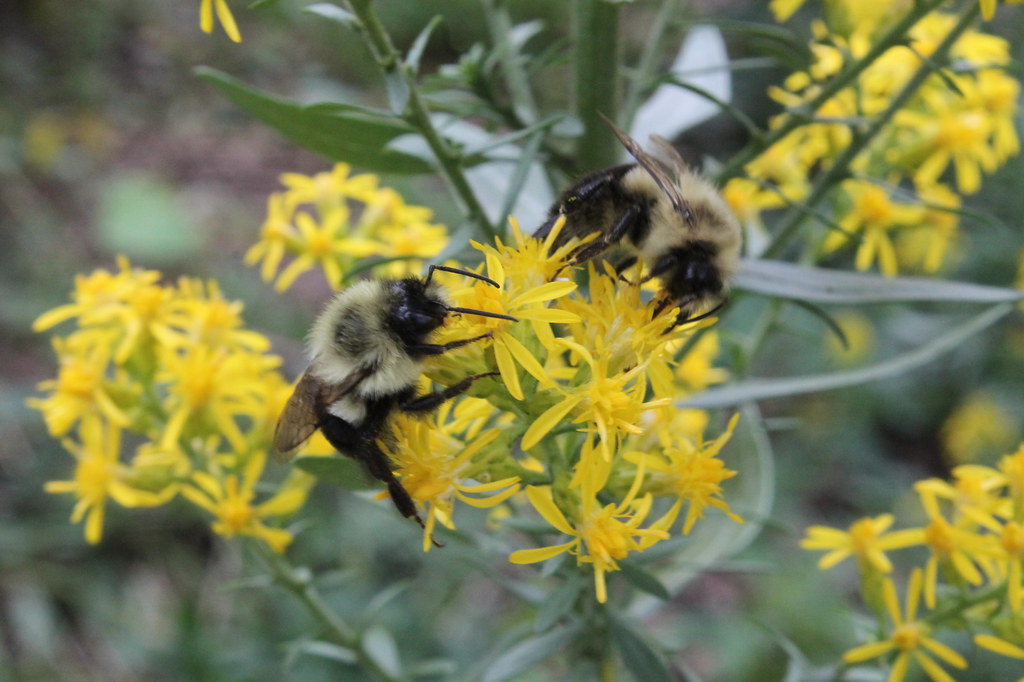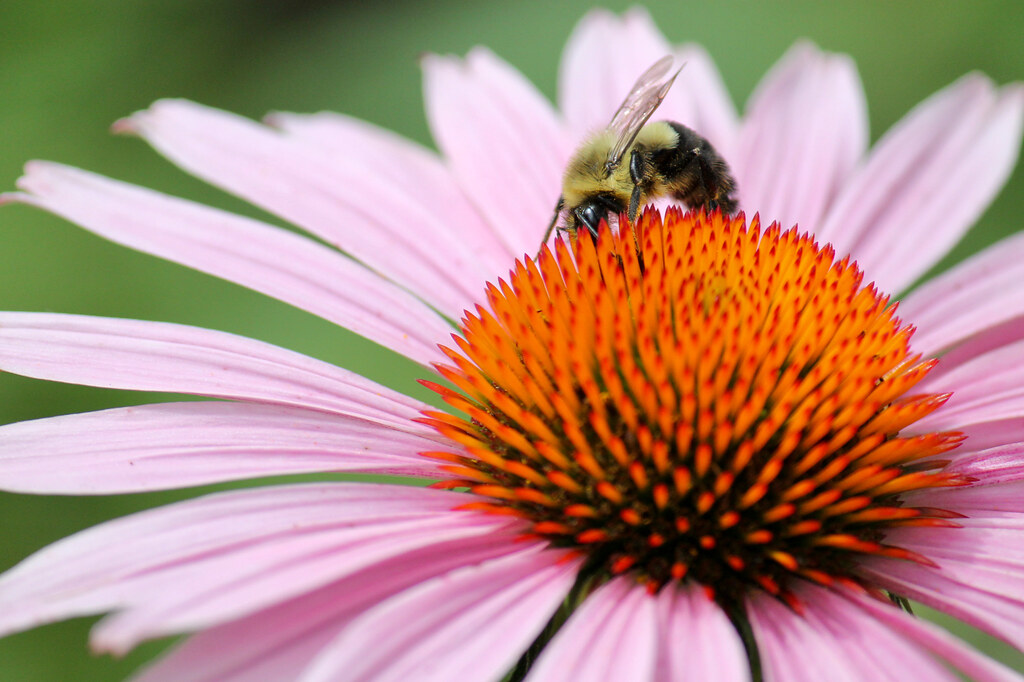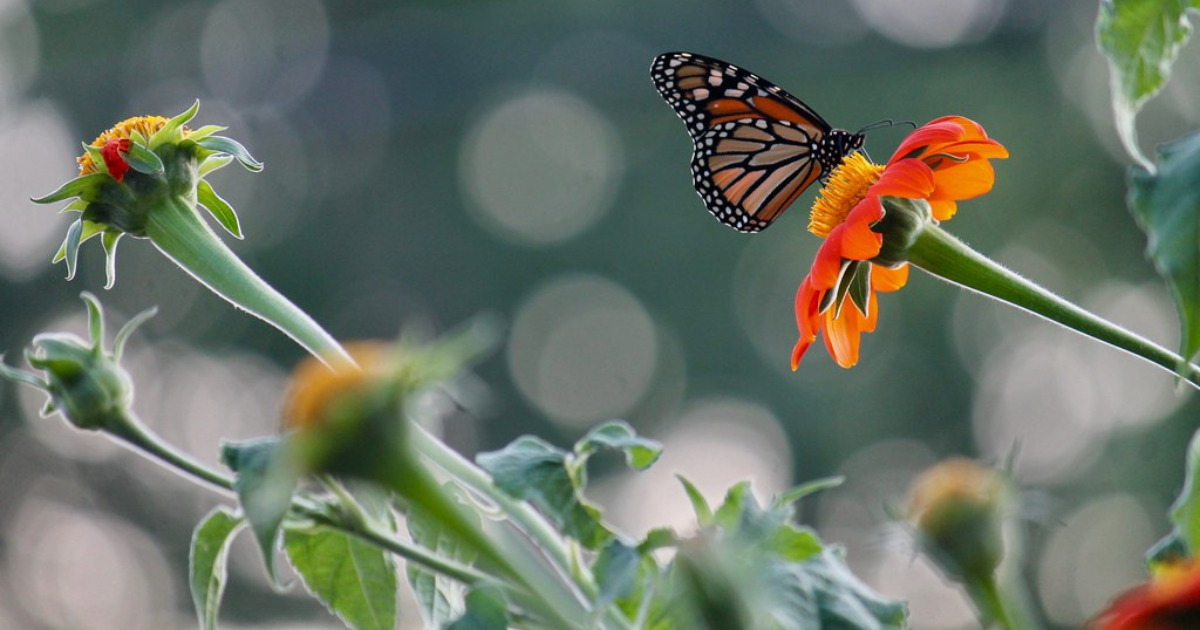Ask a Master Gardener: Finding Neonicotinoid-Free Plants
Hello from South Minneapolis, where we have finally gotten some rain and slight relief to our drought conditions. This month’s Ask the Master Gardener question is about neonicotinoids, a class of pesticides commonly used in the nursery industry as well as home gardens.
Question: Where can I buy neonicotinoid-free plants for my yard and garden?
Answer: First of all, we commend you for seeking out neonic-free plants. Here are a few concerning points from a Xerces Society report:
- Because neonics are systemic pesticides, all parts of the plant, including the nectar and pollen, become toxic to bees.
- These pesticides linger in the soil and the plant itself, affecting pollinators even many weeks or months after their application. Residues have been found in woody plants up to 6 years after application!
- Neonicotinoids have been found in waterways and wetlands downstream from where they were applied.
Click here for the full Xerces society report.

So, what’s a gardener to do? I can’t recommend enough that you buy plants, whenever possible, at a nursery versus a big box store. Nursery staff will be better educated to answer your questions about whether their suppliers use neonics.
Secondly, take some time to familiarize yourself with the common neonicotinoids out there. The main neonicotinoids sold in stores are imidacloprid, thiamethoxam, clothianidin, thiacloprid, dinotefuran, acetamiprid, nitenpyram and sulfoxaflor. They are marketed under names like Bonide, Dominion, Wondercide, GrubGONE, Optigard, BioAdvance Complete Insect Killer, Safari, Ortho Bug Be Gone and many more.
Concern for pollinators is just one of the reasons that Master Gardeners always recommend integrated pest management strategies before going out and buying something that might do more harm than good.
Now for the good news! We have several neonic-free nurseries and plant sales in the Twin Cities region. Here are several-please note that “Prairie” nurseries might not supply vegetable and annual plants. For those, seek out spring plant sales that are dedicated to organic growing.
Minneapolis:
Bachman’s on Lyndale has been neonic-free since 2014.
Mother Earth Gardens, with locations in both NE and Longfellow, Minneapolis.
St. Paul:
The Friends School Plant Sale, yearly event in May
Greater Minnesota:
Prairie Restorations, with locations in Princeton, Scandia and Cloquet
Online, shipping to the entire Midwest:
Prairie Moon Nursery, Winona MN
Prairie Nursery, Westfield, WI

If you are buying native perennials to create pollinator gardens, Wild Ones has a wealth of information about local plant sales and neonic free native plant nurseries.
Another strategy is to look at any nursery for plants grown by Minnesota wholesaler Glacial Ridge Growers, who are neonic free.
Add your comment below if you know of more neonicotinoid-free nurseries or growers and let’s crowdsource some more ideas, especially in greater Minnesota and the Midwest.
The friendly folks at the hort society and I will check in and answer as many questions as we can about this post through Aug. 31. If we don’t get to yours or you don’t want to wait for next month’s installment, you can Ask a Master Gardener via our online form anytime! Or call the yard and garden line at (612) 301-7590.
Other helpful resources:
Master Gardener Volunteer Program
Jennifer Rensenbrink is a University of MN Extension Master Gardener for Hennepin County. She grows native plants, vegetables and fruit in her south Minneapolis yard. You can follow her gardening adventures on Instagram.


I find it hard to believe that Sluggo is a neonic. It is allowed for use on certified organic operations.
Hi Brenda, I did a little more digging on this with my morning coffee today. 😉 It seems like there are multiple products named Sluggo. I actually found it listed on “neonicotinoid-free pesticides” list produced by the government of Oregon:
https://www.oregon.gov/ODA/shared/Documents/Publications/PesticidesPARC/NeoNicAlternativesNurseries.pdf
I think the important thing, if you want to avoid harming bees, is to look for the active ingredient on any pesticide you consider buying. If it is one of imidacloprid, thiamethoxam, clothianidin, thiacloprid, dinotefuran, acetamiprid, nitenpyram or sulfoxaflor, then it’s a neonic. The other most important thing is to follow the instructions on the label. Not only are the label instructions the only lawful way to apply a pesticide, but they’ve been written as to minimize harming insect populations that you don’t want to harm.
Hope this helps! I’ll ask the folks at the Hort to remove “Sluggo” from the list above since there is some confusion around that brand name and some products by that name might *not* be Neonics.
Here is a copy of the label approved by the EPA, Sluggo does not contain a neonic
MASTER LABEL
Active Ingredient:
Iron phosphate ………………………………. 3.0%
05/25/2018 67702-55
Sluggo Maxx brand (ABN: Sluggo HP)
(ABN: Sluggo 3.0)
By weight Other Ingredients: …………………………………. 97.0%
Total 100.0% SUBLABEL A: Home and Garden Use
SUBLABEL B: Commercial Agriculture Use
Thanks, Evelyn!
FYI – Landscape Alternatives in Shafer, MN (on Highway 95 north of Stillwater and south of Taylors Falls) sells native plants that are free of neonics! Please call them to verify so you can add them to your list.
*They also offer 10% off to Hort Society members!
Excellent addition – thanks, Molly! Always an added bonus when we get to promote one of our amazing Discount Partners. https://northerngardener.org/current-discount-partners/
Horta Culture in Afton also offers neonic-free plants. https://www.shophortaculture.com/
Oooh, love them. Thanks, Jennifer!
Hello from South Minneapolis! It’s great to see your concern for pollinators and seeking neonicotinoid-free plants. Your insights about the impact of neonics on bees and the environment are spot on.
Supporting local nurseries is an excellent step, and it’s reassuring to know there are neonic-free options in the Twin Cities region. This information is invaluable for those looking to make responsible choices in their gardens.
Thanks for sharing these resources, and it’s heartening to see your dedication to sustainable gardening practices. Let’s keep the buzz alive for pollinators!